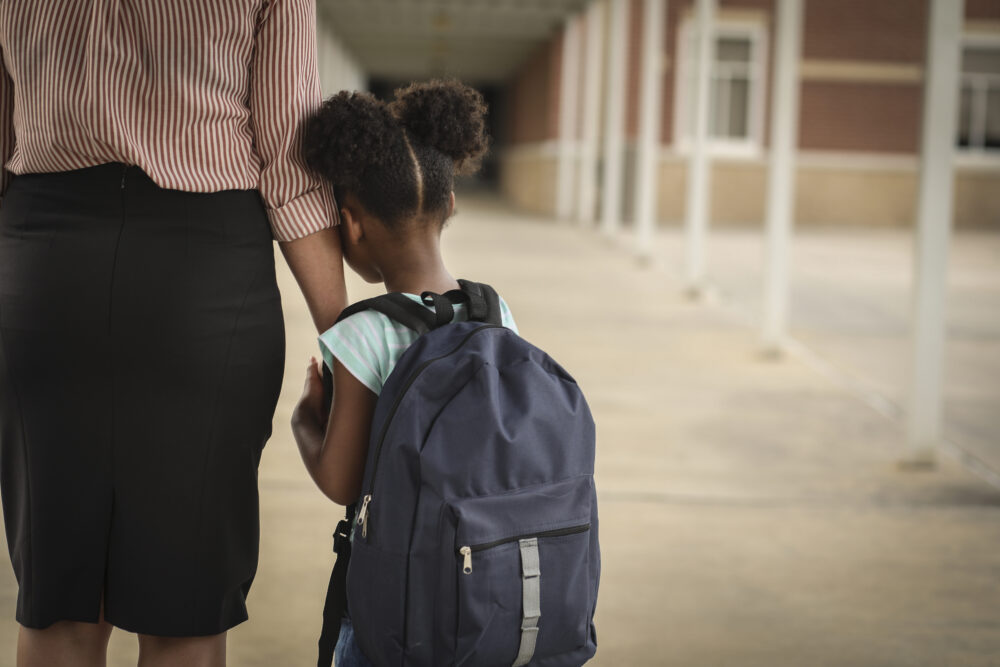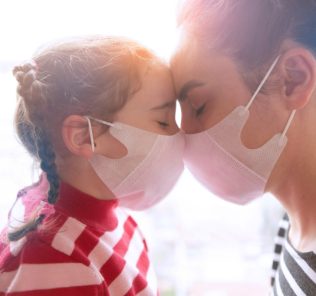School Phobia in the UAE: What to do if your child doesn’t want to go to school?
Being reluctant to get up for school on a Monday morning might seem par for the course for some children, but what if reluctance turns into flat-out refusal? And at what point does school avoidance turn into something more serious; severe anxiety, or even School Phobia?
While every child might resist the early-rise reality of going back to school after a holiday for a few days, for many families school resistance – also known as school refusal, school avoidance, and even school phobia – is a daily struggle.
And there can be serious consequences.
Aside from the emotional toll that it can take on both students and parents, some UAE school rules about attendance can lead to a child being excluded from school all together if they fail to be present regularly enough.
UAE regulatory bodies such as the Knowledge and Human Development Authority in Dubai require all schools to report on the attendance of students, and there are strict guidelines in place for what is expected – with 98% rated as “excellent”, 96% as “good”, 92% as “satisfactory”, and anything less than a 92% attendance rate scored as “unsatisfactory”. For some, absence of more than 14 days consecutively or a total of 21 days in a school year may result in the child not being enrolled for the next academic year.
Joslin Gracias, psychologist at Thrive Wellbeing Centre in Dubai, says she has often seen children who either refuse to go to school, are unable to stay at school for the full day, or who exhibit selective mutism when the topic of school is broached, in her practice:
“Scolionophobia – or ‘school phobia’ – is the extreme fear of school. School refusal is a behaviour or symptom that can manifest because of this phobia. In some cases it may even lead to children exhibiting physical symptoms, such as stomach aches, nausea, headaches, or even vomiting and diarrhoea.
“School phobia It is most common during transition phases like starting middle school or senior school, or it could be because a child is experiencing bullying, teasing, pressure to perform, or has had a bad experience with either a teacher, classmate or friend.
“Another reason for school phobia could be separation anxiety, which is mostly seen in toddlers going to school for the first time.”
Although there is no general consensus on the term ‘school phobia’ – and it is not classified as its own mental illness in the Diagnostic and Statistical Manual of Mental Disorders, Fifth Edition (DSM-5) – it may be associated with other diagnoses, such as anxiety disorders, depression and post-traumatic stress disorder. Ms Gracias explains:
“Social anxiety, low esteem, being overly self-critical, having a lack of emotional regulation, lack of self-compassion, and a low distress tolerance can also all be related to or cause school anxiety.”
What’s normal and what’s worth worrying about?
It’s normal for there to be teething problems in the first few weeks back at school after a holiday and this is when school reluctance or refusal may be most likely to occur, says Melanie Moses, Student Counsellor at GEMS American Academy – Abu Dhabi:
“It is quite common for children to feel anxious about returning to school after an extended break, such as the Winter vacation. The severity of the anxiety can vary depending on the child’s age, personality, and previous experiences.
“Younger children may feel anxious about being separated from their parents, or about being in a new environment with new teachers and classmates. They may also feel nervous about being away from their familiar routine.
“Older children may feel anxious about returning to school due to academic pressures or social dynamics with their peers. They may worry about upcoming exams or assignments, fitting in with their classmates, or facing social challenges such as bullying.”
In some cases, anxiety about returning to school may be a passing phase, explains Ms Moses:
“It may simply be a result of the child’s temperament or personality.
“It’s important to note that anxiety is a normal human emotion, and it’s not always necessary to have a specific reason for feeling anxious. In some cases, anxiety can be a natural response to uncertainty or change, and may simply be a part of the child’s emotional experience.
“That being said, it’s important to identify and address any underlying causes of anxiety, as persistent or severe anxiety can have a negative impact on a child’s well-being and academic performance.”
The COVID-19 pandemic is responsible for increased levels of school anxiety, says Mahira Youshey Zakiuddin, GEMS Wellington Academy Silicon Oasis Director Counselling:
“While some anxiety about returning to school is perfectly natural, post-pandemic levels have resulted in this increasing significantly.
“To understand the reasons, we must consider how anxiety works. Anxiety is a complex psychological and physiological response that involves a range of changes in the brain and body. When a person experiences anxiety, the amygdala, which is responsible for processing emotions, including fear and anxiety, becomes activated and it initiates the fight-or-flight response in the body.
“This response triggers the release of stress hormones, which cause a range of physiological changes, such as increased heart rate, rapid breathing, and heightened senses, which helps the body to respond to the perceived threat. At the same time, the prefrontal cortex, which is responsible for decision-making and rational thinking, becomes less active. This can make it difficult for a person to think clearly and make logical decisions when they are experiencing anxiety.
“Most mental health professionals agree that this was a constant state of our brain over the course of the pandemic. This constant “on/off” switch in our brain has resulted in chronic anxiety, which is known to lead structural changes in the brain, including changes in the size and function of the amygdala and prefrontal cortex. These changes can lead to a heightened sensitivity to stress and anxiety and can make it more difficult for a person to regulate their emotions and manage their anxiety. For children, when their brains are developing, this can be quite distressing.
“Therefore, for some children, there is heightened responses to specific challenges they face at school, such as difficulty with academics, social relationships, or bullying. Children may feel that they are unable to identify a specific reason for their feelings. While it can be “one of those things”, where the anxiety is expected and natural due to the uncertainty of transitioning back to the structured routine of school, parents and guardians must rule of chronic anxiety with the support of a school counsellor and/or community mental health professional.”
How common is it for children to actually refuse to go to school?
School refusal has always been a common problem, but its prevalence has increased in recent years says Mahira Youshey Zakiuddin, GEMS Wellington Director Counselling:
“Prior to the pandemic, it was estimated by the Anxiety and Depression Association of America (ADAA) that 2-5% of school-age children experienced school refusal. However, the pandemic and related school closures, remote learning, and disruptions to daily routines have caused increased levels of stress and anxiety in many children and adolescents. This has led to an increase in school refusal rates, particularly among those who struggle with mental health challenges.
“Research has also shown that school refusal is more common in certain age groups. For example, school refusal tends to peak in early adolescence, between the ages of 11 and 14. Additionally, school refusal is more common in girls than boys, and it is more likely to occur in children who have a history of anxiety or other mental health disorders.
“A survey conducted by the National Education Association in the United States found that over 75% of teachers reported an increase in student mental health issues during the pandemic, including school refusal. Another study by the Centers for Disease Control and Prevention (CDC) found that the proportion of emergency department visits for mental health concerns among children aged 5-11 increased by 24% from 2019 to 2020. A study published in 2019 in the Journal of Affective Disorders found that anxiety and depression were common among adolescents in the UAE, with prevalence rates of 18.5% and 17.5%, respectively. While the study did not focus specifically on school refusal, it suggests that mental health issues may be a significant concern for young people in the UAE, which could contribute to school-related anxiety and avoidance.
“Overall, it is clear that the COVID-19 pandemic has had a significant impact on the mental health and well-being of children and adolescents, including increased rates of school refusal.”
Ray Boxall, SEND Lead Practitioner at online school Kings InterHigh – which is headquartered in the UK but provides a UAE-centric timetable – agrees that the pandemic has heightened some children’s anxiety levels:
“We know that, particularly since the pandemic, growing numbers of young people have found it challenging to attend their educational setting due to anxiety.
“Students who have challenges around anxiety can often find that the high level of sensory stimulation, often declining levels of support and sometimes disruptive behaviour can be debilitating.
“We find that anxiety about attending in-person school is a very common reason for students to come to us at King’s InterHigh initially. In an online setting, students who have these challenges often benefit from a calm, purposeful, engaging environment.”
Can online schooling “fix” school phobia?
For those children who do suffer with high levels of anxiety, attending online school instead of in-person schooling can be a welcome relief, and a way of solving the discomfort they have with many aspects of the in-person school environment, Mr Boxall continues:
“Online schooling is unquestionably an effective method for alleviating anxiety. In my role at King’s InterHigh, I frequently have conversations with parents who reflect on the improvement in the child’s overall wellbeing once the struggle to get them into school is removed. The flexibility that online schooling provides is the biggest boon when it comes to supporting students’ mental health. They are able to choose their contribution level in terms of how they communicate in the classroom setting, which is really significant. Furthermore, they have access to lesson resources and lesson recordings at the click of a button, thus removing the anxiety about falling behind if they have a ‘bad day’.”
While online schooling might solve specific anxieties related to in-person schooling, children with anxiety disorders may still suffer from anxiety. However, there are also additional layers of support available, says Mr Boxall:
“Although we find that our setting is very effective in helping to manage attendance anxiety, we recognise that these challenges can persist for some students, or are part of the ‘bigger picture’ of their additional needs and identity. Anxiety is by far the most common co-morbidity for students with a range of additional learning needs. As an online school, we are able to offer really flexible solutions for the individual student in terms of the curriculum that they study, how and when they access their lessons and so on.”
“In addition to the supports outlined above, we have developed some new innovations for this academic year. Firstly, where students have additional learning needs including mental health challenges around anxiety, we recommend that parents complete an Inclusive Teaching Plan, which is essentially a menu of supportive teaching approaches the parents can select to support their children. They of course know them best and this information is then displayed straight away in the teachers’ course registers. No more waiting for parents evening to ensure that your child’s teacher truly understands their needs! Many students are also benefiting from our new programme of additional paid-for support, which includes specific courses on anxiety management, social skills, wellbeing mentoring and even one-to-one counselling support with our qualified school counsellor – all delivered online.”
What can help a child with school anxiety?
If your child is suffering from school anxiety, a strong relationship with your child’s teachers is key, says Mr Boxall of Kings InterHigh:
“As a former state school senior leader who always worked in inclusion and pastoral care, I feel that communication and relationships are absolutely key.
“Do keep up the dialogue with your child’s tutor, head of year or other relevant member of staff, having a clear plan in place about how to make school engaging, incentivised and understanding of your child’s struggles.
“If despite all parties working together for a solution, it simply doesn’t work for your child, we would ask you to consider online schooling – we are here, ready to provide an innovative, world-class education that can deliver the flexibility to meet your child’s needs.”
Mahira Youshey Zakiuddin, GEMS Wellington Director Counselling, says:
“If your child’s anxiety is severe or persistent, it may be helpful to seek professional support from a mental health provider, such as a therapist or counsellor.
School counsellors or mental health professionals: Schools can provide access to trained counsellors or mental health professionals who can work with the student to address their anxiety and develop coping strategies.
Accommodations and modifications: Schools can work with parents to identify accommodations and modifications that can make school less stressful for the student. This could include things like reducing homework load, providing extra time for assignments, or allowing the student to take breaks when needed.
Peer support: Schools can facilitate peer support by pairing the student with a supportive classmate, or by creating opportunities for the student to participate in social activities with peers.
Parent education: Schools can provide resources and education to parents on how to best support their child’s mental health and manage anxiety at home.
Referral to outside resources: In some cases, schools may need to refer the student and their family to outside mental health resources for additional support. The UAE has a thriving community of mental health providers and parents can get access to this through the school counsellor.
Parents should feel comfortable asking schools for these types of support if their child is experiencing anxiety or refusing to go to school. Schools have a responsibility to provide a safe and supportive learning environment for all students, and addressing mental health concerns is an important part of that responsibility.
What sort of strategies can parents use to try to allay a child’s school anxiety?
There are a variety of strategies that parents can use to help allay their child’s anxiety and encourage them to go to school happily, says Mahira Youshey Zakiuddin, GEMS Wellington Director Counselling:
Be aware of your own anxiety: It’s important to recognise that parents can inadvertently project their own anxiety onto their children, and this can have a negative impact on the child’s emotional well-being. Parental anxiety can show up in a number of ways:
Overprotectiveness: Parents who are anxious may become overprotective of their children, limiting their opportunities for exploration and independence. This can make the child feel anxious and dependent, and may interfere with their development of coping skills and resilience.
Controlling behaviours: Anxious parents may try to control every aspect of their child’s life, including their activities, friendships, and schoolwork. This can lead to a sense of pressure and anxiety for the child, who may feel like they are not trusted to make their own decisions.
Catastrophizing: Parents who are anxious may catastrophize small problems, making them seem much bigger and scarier than they actually are. This can create a sense of fear and anxiety in the child, who may start to see the world as a dangerous and unpredictable place.
Overreacting: Anxious parents may overreact to small issues or mistakes, which can create a sense of fear and anxiety in the child. This can make the child feel like they are walking on eggshells, and may interfere with their ability to take risks and try new things.
Validate their feelings: Acknowledge, through words and actions, that their anxiety is real and understandable. One way of validating feeling is using active listening, this requires using statements and actions that demonstrate that you are available and present. For example saying: “I understand that going to school can be scary sometimes” or “I’m here for you and I want to help you feel more comfortable about going to school.”
Listen and communicate: Ask your child what is making them anxious and try to address their concerns. Talk to them about what they can expect at school, and reassure them that they are capable of handling any challenges that may come their way. Be careful that you are not launching into a monologue or pushing them beyond where the child is at. As you speak, continue to clarify and assess if the suggestions you are offering are appropriate and observe the child’s response. Tailor your language to the child’s age and developmental level. Use words and phrases that they can understand and avoid using complex or technical language that may confuse or overwhelm them.
Develop a routine: Establishing a regular routine can help children feel more secure and comfortable. This can include having set wake-up times, mealtimes, and bedtimes, as well as creating a consistent after-school routine that allows for relaxation and socialization. It’s also important to be flexible and adaptable. Unexpected events or changes in circumstances may require adjustments to the routine, and it’s important to be open to making these changes as needed.
Encourage self-care: Encourage your child to engage in activities that promote self-care and relaxation, such as exercise, meditation, or reading. This can help them feel more calm and centred. Modelling self-care can be an important way for children to adopt the same for themselves.
Practice gradual exposure: The goal of gradual exposure is to help the person build confidence and reduce their anxiety by confronting their fears in a gradual and controlled way, rather than avoiding them altogether. Gradual exposure to the school environment can help children build confidence and reduce their anxiety.
Celebrate successes: Celebrate your child’s successes, no matter how small. This can help build their confidence and reinforce positive behaviours.
Overall, the key is to be patient, understanding, and supportive. By working with your child and providing them with the tools and resources they need, you can help them manage their anxiety and feel more confident and comfortable about going to school.






























































Leave a Response